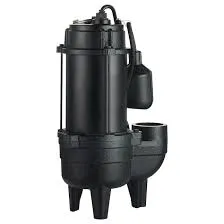Uzbek
- Afrikaans
- Albanian
- Amharic
- Arabic
- Armenian
- Azerbaijani
- Basque
- Belarusian
- Bengali
- Bosnian
- Bulgarian
- Catalan
- Cebuano
- Corsican
- Croatian
- Czech
- Danish
- Dutch
- English
- Esperanto
- Estonian
- Finnish
- French
- Frisian
- Galician
- Georgian
- German
- Greek
- Gujarati
- Haitian Creole
- hausa
- hawaiian
- Hebrew
- Hindi
- Miao
- Hungarian
- Icelandic
- igbo
- Indonesian
- irish
- Italian
- Japanese
- Javanese
- Kannada
- kazakh
- Khmer
- Rwandese
- Korean
- Kurdish
- Kyrgyz
- Lao
- Latin
- Latvian
- Lithuanian
- Luxembourgish
- Macedonian
- Malgashi
- Malay
- Malayalam
- Maltese
- Maori
- Marathi
- Mongolian
- Myanmar
- Nepali
- Norwegian
- Norwegian
- Occitan
- Pashto
- Persian
- Polish
- Portuguese
- Punjabi
- Romanian
- Russian
- Samoan
- Scottish Gaelic
- Serbian
- Sesotho
- Shona
- Sindhi
- Sinhala
- Slovak
- Slovenian
- Somali
- Spanish
- Sundanese
- Swahili
- Swedish
- Tagalog
- Tajik
- Tamil
- Tatar
- Telugu
- Thai
- Turkish
- Turkmen
- Ukrainian
- Urdu
- Uighur
- Uzbek
- Vietnamese
- Welsh
- Bantu
- Yiddish
- Yoruba
- Zulu
Telephone: +86 13120555503
Email: frank@cypump.com
Dek . 07, 2024 09:42 Back to list
'understanding the functionality and applications of impeller ...'
Understanding the Functionality and Applications of Impellers
An impeller is a crucial component in various types of machinery, especially in fluid dynamics, where it plays a significant role in the movement of fluids. Understanding its functionality and applications is essential in fields ranging from engineering to environmental science.
Structure and Functionality of Impellers
At its core, an impeller is a rotating device that transfers energy from a motor to a fluid. Its design typically features blades or vanes that are engineered to propel the fluid outward from the axis of rotation. This centrifugal force created by the spinning impeller increases the fluid's velocity and pressure, making it an effective pump or mixer.
Impellers can be classified into several types based on their design and application. The common types include open, semi-open, and closed impellers. Open impellers have blades that are not enclosed by a casing, making them suitable for pumping fluids with large solids. Semi-open impellers combine features of both open and closed designs, while closed impellers offer improved efficiency and are ideal for clean, solid-free fluids.
Understanding the function of an impeller involves recognizing how its blade angle, width, and rotational speed affect flow rates and pressure. The dynamic interaction between the impeller and the fluid is critical to its performance, influencing factors such as turbulence, energy consumption, and the overall effectiveness of fluid transport.
Applications of Impellers
The applications of impellers are vast and diverse, spanning multiple industries. One of the most prevalent uses is in centrifugal pumps, where impellers are employed to move water in various systems, including residential, industrial, and agricultural settings. For example, in water supply networks, impellers facilitate the transfer of water from reservoirs to users, ensuring consistent availability.
'understanding the functionality and applications of impeller ...'

In the chemical processing industry, impellers are instrumental in mixing chemicals and facilitating reactions. They ensure the uniform distribution of materials, which is critical in producing consistent products and optimizing reaction times. Their design must consider the specific properties of the chemicals being mixed to optimize efficiency and minimize energy consumption.
The food and beverage industry also relies on impellers for various processes, such as homogenization and mixing
. For instance, in the production of sauces and dressings, impellers ensure that ingredients are uniformly combined, resulting in a consistent flavor and texture.Moreover, impellers find applications in wastewater treatment facilities. They are used in aeration tanks to mix wastewater and oxygenate it, promoting the growth of beneficial bacteria that break down organic matter. This application is integral to the treatment process, enhancing the efficiency and effectiveness of water purification.
Advancements and Future Trends
The evolution of impeller technology continues to advance with innovations in materials and design. Recent developments, including computational fluid dynamics (CFD) simulations, allow engineers to design more efficient impellers tailored for specific applications, resulting in reduced energy consumption and improved performance.
Additionally, the growing focus on sustainability and environmental protection is steering research and development in creating energy-efficient impellers. These new designs aim to optimize fluid dynamics and minimize ecological impact, reflecting an industry-wide shift towards greener practices.
Conclusion
Understanding the functionality and applications of impellers is pivotal in various sectors that depend on fluid movement and mixing. Their versatility and efficiency make them invaluable in numerous industrial processes, from water supply to chemical processing. As technology continues to evolve, impellers will play an increasingly significant role in enhancing efficiency and sustainability in fluid dynamics.
-
Custom Drilling Mud and Slurry Pump Supplier - High Efficiency, Tailored Solutions
NewsJun.10,2025
-
Supply Vertical Submersible Sewage Pump High-Efficiency WQ/QW Pumps Supplier
NewsJun.10,2025
-
Premium Sewage Ejection System & Pumps Efficient Waste Removal
NewsJun.09,2025
-
Premium Wholesale Slurry Pump Impellers Durable & Efficient Slurry Handling
NewsJun.09,2025
-
Top Sewage Pump Companies Durable Industrial Solutions for Efficiency
NewsJun.09,2025
-
Heavy Duty Slurry Pumps - OEM High Performance & Bulk Wholesale
NewsJun.09,2025










